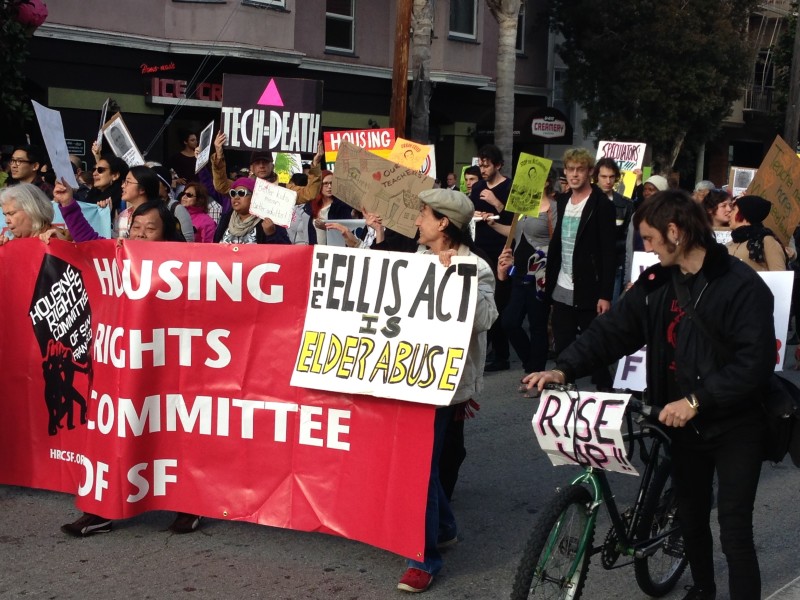State Sen. Mark Leno's attempt to limit some types of evictions in San Francisco will not move forward this year after the Democrat ran into opposition in a Senate policy committee.
It's the second year in a row that Leno has tried to amend state law to allow San Francisco to require that landlords own their buildings for at least five years before they can evict someone using the Ellis Act. While San Francisco tenants have strong protections under the city's rent control ordinance, the state law allows property owners to evict tenants if they want to take the building off the rental market.
Tenant advocates and city officials, including Mayor Ed Lee, pushed hard for the bill, arguing that real estate speculators are taking advantage of the state law to clear their buildings of low-paying tenants. They cited city reports showing that Ellis Act evictions tripled in 2014, and that half of landlords who used the act to boot tenants in 2013 had owned their buildings for less than a year.
“It is being abused currently, specifically in San Francisco, not by landlords and not by people who even pretend or intend to be landlords," Leno said. "These are speculators who, with very clear intent, purchase rental properties with the design to evict all tenants so that they can make a quick and significant profit by flipping the property."
Leno said his proposal would have separated and protected what he called "real landlords." The bill would have applied only to San Francisco and would have required the city change its own law to realize the protections.
